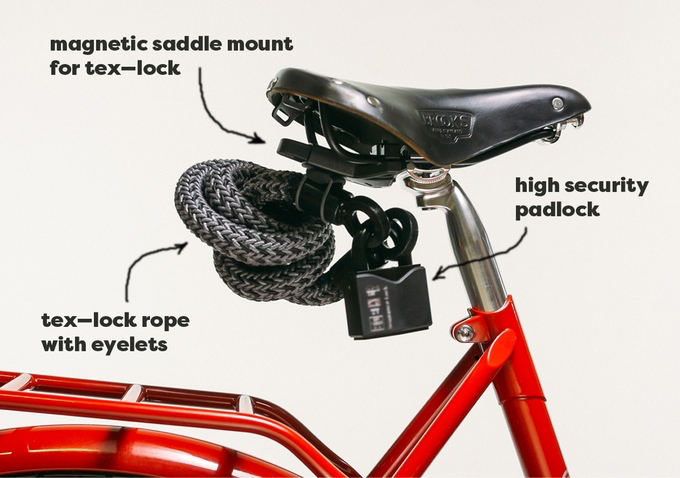
There has to be a better way. In fact, there is.
A group of cycling enthusiasts frustrated with existing locks came up with Tex-Lock, a flexible and lightweight cable lock that’s as secure as existing metal locks but at a fraction of the weight. Unlike existing locks that utilize metal as their core material, Tex-Lock uses a textile-based rope material that is manufactured in layers. There is a decorative shield on the outside that protects from water and fire, and it contains cut-resistant layers.
The textile is braided into a chain flexible enough to fit into the front pocket of a shell, yet robust enough to resist cutting by bolt cutters and even fracturing by ice spray. In fact, the colder it gets, the stronger the textile fabric becomes. It also is heat resistant and will maintain its integrity even under a direct flame.
Tex-Lock is secure, but its biggest benefit is that it is travel-friendly. The flexible cable can be coiled to fit into small bags and jacket pockets. It is also soft, which means it can dangle off your top tube and not scratch your bike or bruise your legs. The fabric rope is lightweight weighing no more than 350 grams (about 12 ounces) per meter, which is minuscule when compared to metal bicycle locks which can weigh over 4 pounds, depending on their construction.
Tex-Lock is being sold as a Kickstarter-funded project with an estimated ship date of August 2017. The entry level short Tex-Lock costs approximately $100, while the XL version will set you back $120. All versions include a padlock and bracket to attaches the lock to your bicycle.




